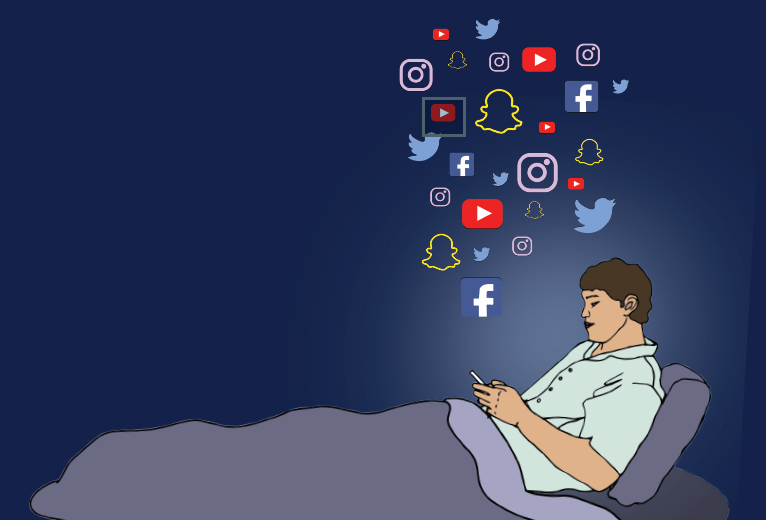A profile of social media addiction
February 16, 2021
According to the International Journal of Environmental Research and Public Health, internet addiction was first a concept of discussion in 1996. Because students do most, if not all of their work over the internet today, social media addiction, which falls under the blanket term of internet addiction, can be extremely hazardous to both their grades and their mental health.
An article in the Journal of Medical Internet Research found the preferred method of combating social media addiction, Facebook addiction in particular, among students. They found that students preferred being notified when they have been using social media excessively, as well as automatically limiting the amount of time they can spend on social media based on the time, frequency and location of their social media usage.
The same article states that social media addiction has been proven to cause emotional, relational and health-related problems. The most notable of these are depression, anxiety, procrastination habits, insomnia and poorer sleep quality.
The article cites another study that reveals a correlation between social media addiction and time distortion, meaning that the more addicted to social media a student was, the slower time seemed to move for them when they were deprived of social media.
An article in the International Journal of Environmental Research and Public Health states that women use social networks, academic applications and listen to music more than men, and that men play video games, betting games and visit adult pages more than women. The article states that women’s greater use of social networks may have a connection to the fact that they are more susceptible to social media addiction than men.
The article states that playing video games has the second-highest risk of becoming problematic, right under social networking. Another article in the same journal states that what the World Health Organization (WHO) classifies Internet Gaming Disorder (IGD) as related to multiple problems, much like social media addiction. These problems include social anxiety, fatigue, loneliness, negative self-esteem and lower academic achievement. The article found that those who play video games on a PC, those who began playing video games at an early age and those who play video games with friends are more susceptible to addiction.



